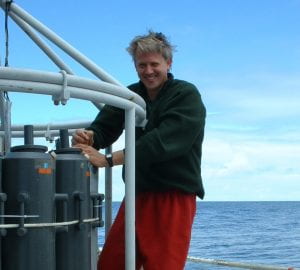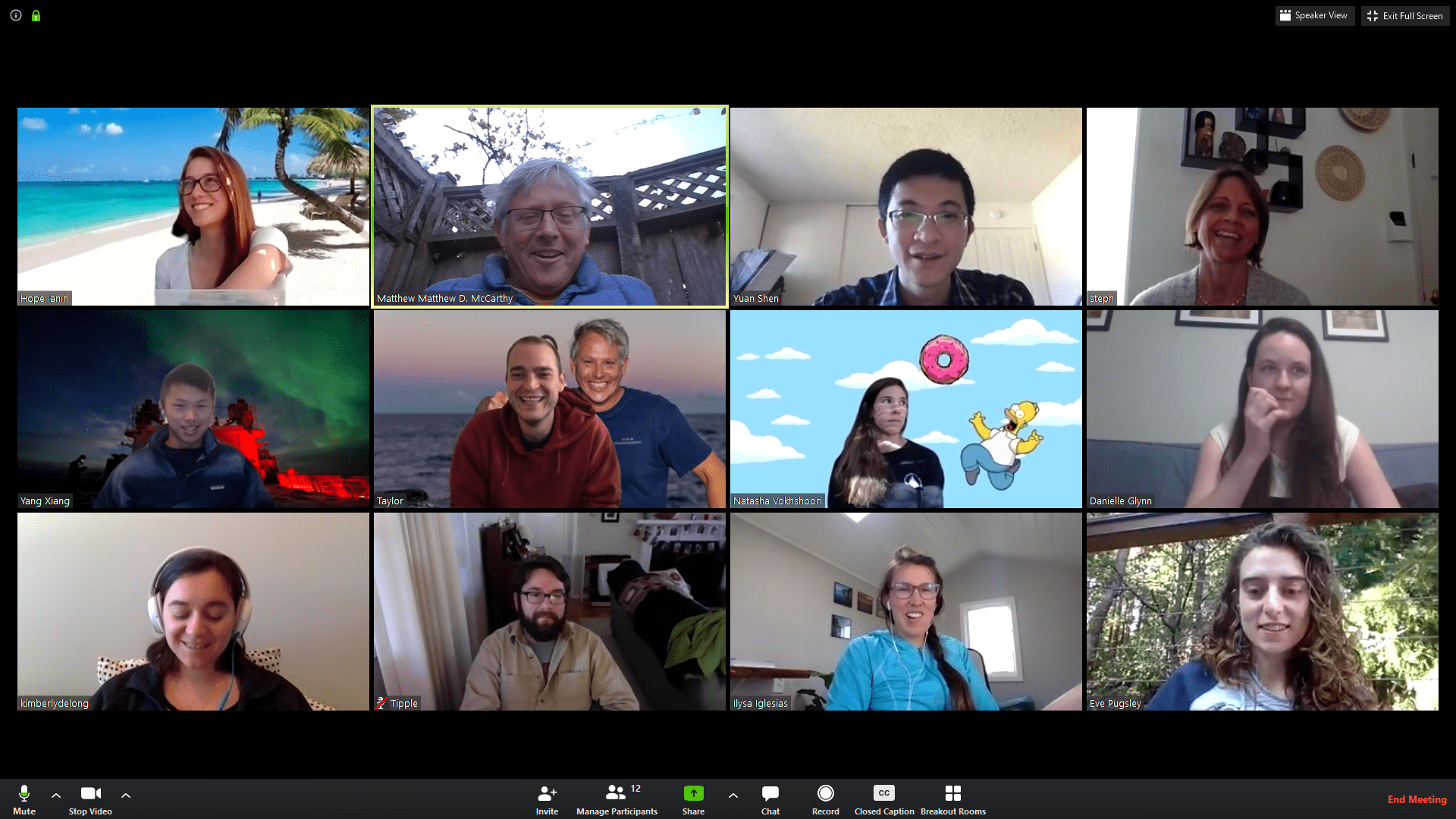Matthew McCarthy
Professor
The University of California, Santa Cruz
Department of Ocean Science
1156 High Street
Santa Cruz, CA 95060
Organic geochemistry seeks to understand the role of organic matter in the geosphere: how reduced carbon, nitrogen and other elements are produced, cycled, and regulate major planetary biogeochemical cycles. A main focus is developing new molecular and isotope approaches which can be used to trace both biological and geochemical cycles.
The McCarthy Lab’s research centers on creating novel molecular-level organic and isotope approaches to understand major biogeochemical cycles in the sea, with a focus on how organic molecules record biological and geochemical processes. New method development underpins almost all of our work, focusing on two broad areas: 1) compound-specific isotope analysis of individual amino acids (CSIA-AA), for tracing organic nitrogen source, diagenesis, food web and paleo-processes, and 2) radiocarbon (D14C) applications to unravel the cycling rates of organic nitrogen, as well as “uncharacterizable” organic materials.
Current research includes collaborative efforts in multiple areas including: ocean dissolved organic matter, paleoceanography, organic geochemistry of nitrogen in both sediments and the water column, ocean ecology, and new CSIA-AA development and applications in such fields as archaeology, estuarine, and deep-sea research.

